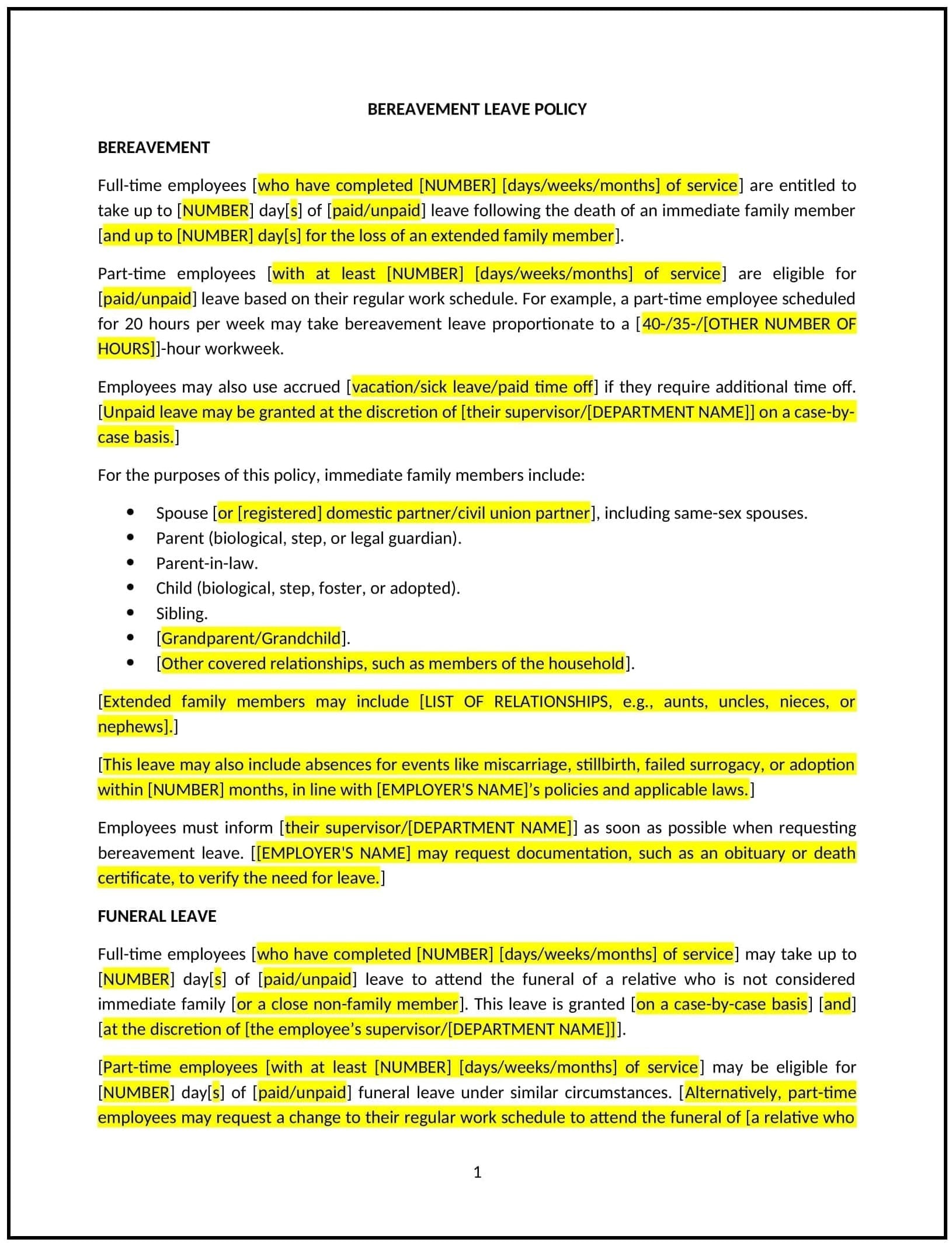Got contracts to review? While you're here for policies, let Cobrief make contract review effortless—start your free review now.

Customize this template for free
Bereavement leave policy (Michigan)
A bereavement leave policy provides Michigan businesses with guidelines for offering employees time off in the event of the death of a family member or loved one. This policy ensures that employees have the opportunity to grieve and attend to family matters without the added stress of work commitments.
By adopting this policy, businesses can support their employees during difficult times, promote a compassionate work environment, and maintain consistency in leave practices.
How to use this bereavement leave policy (Michigan)
- Define eligible relationships: Clearly specify which family members or loved ones qualify for bereavement leave (e.g., spouse, parent, child, sibling, grandparent, or close family member).
- Specify the duration of leave: Outline the amount of bereavement leave offered, such as 3 to 5 days, and whether additional leave can be taken with approval or using paid time off (PTO).
- Set notification procedures: Establish the process for notifying supervisors or HR about the need for bereavement leave, including timelines for informing the company.
- Address pay during leave: Clarify whether bereavement leave is paid or unpaid and whether employees can use other types of leave (e.g., PTO) if they exhaust their bereavement leave.
- Provide flexibility: Consider offering flexible leave options if the employee needs additional time to manage the affairs of the deceased or if they are dealing with a complex family situation.
- Address the impact on work: Ensure that employees know how their workload will be managed in their absence and how to arrange for coverage if necessary.
- Reinforce privacy: Respect the privacy of employees during this time by ensuring that the details of their bereavement leave are handled confidentially.
Benefits of using this bereavement leave policy (Michigan)
This policy provides several key benefits for Michigan businesses:
- Supports employee well-being: Provides employees with the time and space to grieve and manage family matters without worrying about work.
- Promotes empathy and trust: Demonstrates the business’s compassion for employees during difficult personal times, fostering trust and loyalty.
- Enhances work-life balance: Allows employees to attend to personal matters without sacrificing their job or income, promoting a healthier work-life balance.
- Ensures consistency: Sets clear expectations for bereavement leave, ensuring fairness across the organization.
- Complies with legal requirements: Helps ensure the business meets any legal requirements in Michigan regarding leave for family matters and death.
Tips for using this bereavement leave policy (Michigan)
- Communicate the policy: Ensure employees are aware of the bereavement leave policy by including it in the employee handbook, on the company intranet, and in onboarding materials.
- Provide a clear process: Make it easy for employees to request bereavement leave by establishing clear, straightforward procedures for notifying the company.
- Be flexible when needed: Understand that grief can affect employees differently, so be open to flexible arrangements for extended time off if necessary.
- Maintain confidentiality: Keep the details of the employee’s bereavement and leave request private, sharing only necessary information with relevant staff.
- Review periodically: Update the policy to reflect changes in Michigan state laws, industry standards, or internal practices.